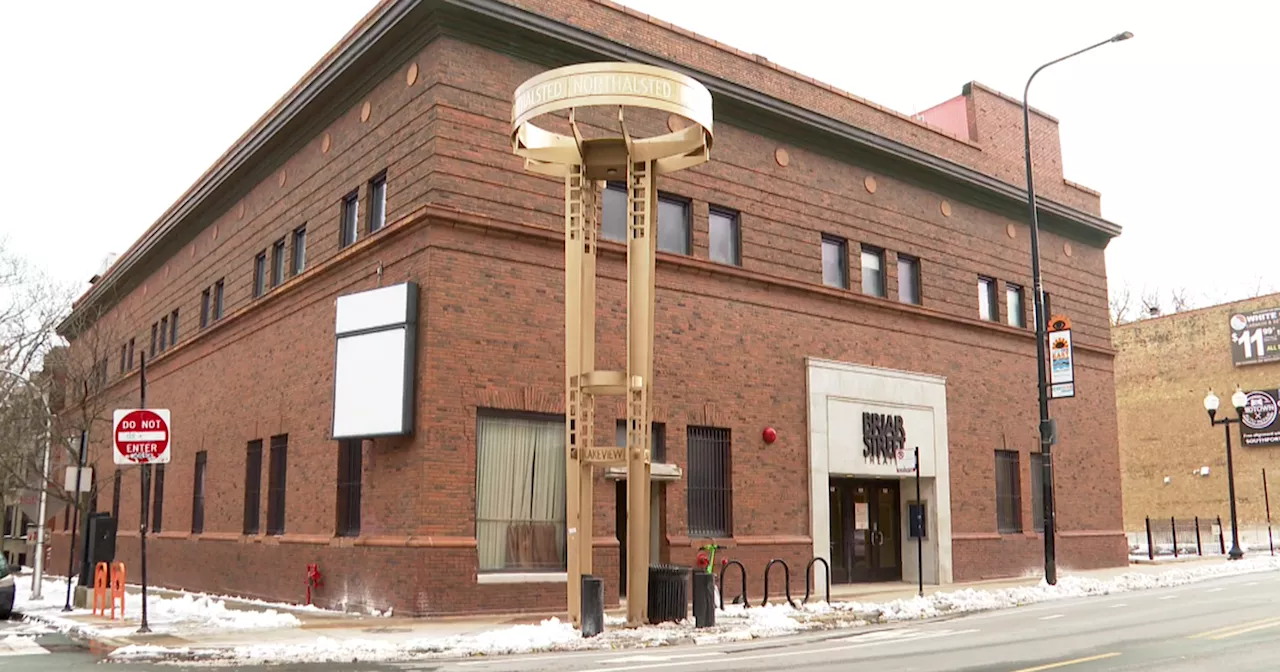Chicago’s vibrant theater scene is grappling with significant challenges as several historic venues close their doors. The loss of these beloved spaces, including the Briar Street Theatre, which hosted the Blue Man Group for nearly 30 years, highlights a troubling trend in the city’s cultural landscape. As of January 2025, this venue at 3133 N. Halsted St. will no longer serve as a stage, marking the end of an era for many theatergoers who have known it solely for that production.
The Briar Street Theatre, originally built in a former horse carriage house, will not be demolished but will undergo redevelopment into a mixed-use facility featuring housing units and commercial space. This trend of transformation is not isolated; just half a mile away, the Theatre Building, which has served as an incubator for small theater companies since its opening in 1977, is also slated for demolition to make way for new housing. The building was known for hosting over 800 plays and nurturing local talent, including the early works of the Steppenwolf Theatre Company.
Historic Venues Disappear
The Royal George Theatre, located at 1641 N. Halsted St., is another casualty of this shifting landscape. Since its inception in 1984, it has been home to iconic shows such as Forever Plaid and Late Nite Catechism. However, after closing due to the COVID-19 pandemic, the venue will be replaced by a nine-story apartment complex. The theater’s closure is emblematic of a broader decline in the availability of performance spaces in Chicago.
While many venues are closing or reimagining their space, the state of Chicago theater is not entirely bleak. The Victory Gardens Theater, established in 1974, has recently resumed performances with a production of David Mamet’s Henry Johnson. Despite facing internal controversies in recent years, the theater aims to launch an exciting 2026 season, which includes workshops and new partnerships.
The Mercury Theater, which announced its permanent closure during the pandemic, has surprisingly reopened and is experiencing a resurgence, evidenced by its recent success with a production of Jersey Boys, which won a Jeff Award in 2024. Nevertheless, uncertainty lingers as the theater has not hosted any performances for nearly a year.
Concerns for the Future
The current state of Chicago’s theater community raises alarms among critics and audiences alike. Chris Jones, a theater critic for the Chicago Tribune, has highlighted several factors contributing to this crisis. In an August 2023 column, he noted that 34 theater companies had closed between 2019 and 2023, and many of the city’s prominent nonprofit theaters, including Steppenwolf and Chicago Shakespeare, have seen leadership changes. The audience has not returned in full force, and the competition from digital entertainment and a changing cultural landscape have also played significant roles.
Jones points out that the business model for many theaters, which often relies on subscription seasons, may be outdated. Internal disputes and public criticisms about artistic directors’ compensation further complicate the situation. He emphasizes that while new buildings have been constructed, such as the $28 million Writers Theatre in 2016 and the $54 million Liz & Eric Lefkofsky Art & Education Center at Steppenwolf, there is a disconnect between the financial investments in infrastructure and the financial support for artists.
Despite these challenges, there are signs of resilience within the community. Playwright Vicki Quade, known for creating Late Nite Catechism, reflects on the changing nature of audiences and venues. She notes that the many theaters that once hosted her production have vanished, yet she remains optimistic about the possibilities for new works and productions that resonate with contemporary audiences.
Quade points out that while the audience for live performances has diminished, particularly among suburban residents wary of traveling into the city, there remains a strong local support network. She believes that theaters must engage communities both locally and regionally while also adapting to changing preferences. “It’s got to be local support. It has to be suburban support. It has to be tourism,” she states.
The shifting landscape of Chicago’s theater scene is marked by a blend of loss and renewal. The recent reopening of the Lookingglass Theatre Company at the Water Tower Waterworks and the ongoing success of venues like the Studebaker Theater highlight the community’s determination to adapt and thrive. The Studebaker, which has undergone a renaissance since its reopening in 2022, serves as a venue for both local productions and touring shows, reinforcing Chicago’s reputation as a vital stop for theatrical endeavors.
As the city navigates this transitional period, the collaborative spirit within the Chicago theater community offers hope. Jacob Harvey, managing artistic director of theaters at the Fine Arts Building, emphasizes the importance of cooperation and resource-sharing among theater companies. “We stand on each other’s shoulders. We help each other out,” he says.
In conclusion, while challenges loom over Chicago’s theater scene, the community’s resilience and willingness to innovate suggest that the spirit of live performance will endure. Quade encourages audiences to return to theaters, asserting that the unique experience of live performance is irreplaceable. “Don’t sit home and just watch Netflix,” she advises, reminding everyone of the joy found in the shared experience of theater.
